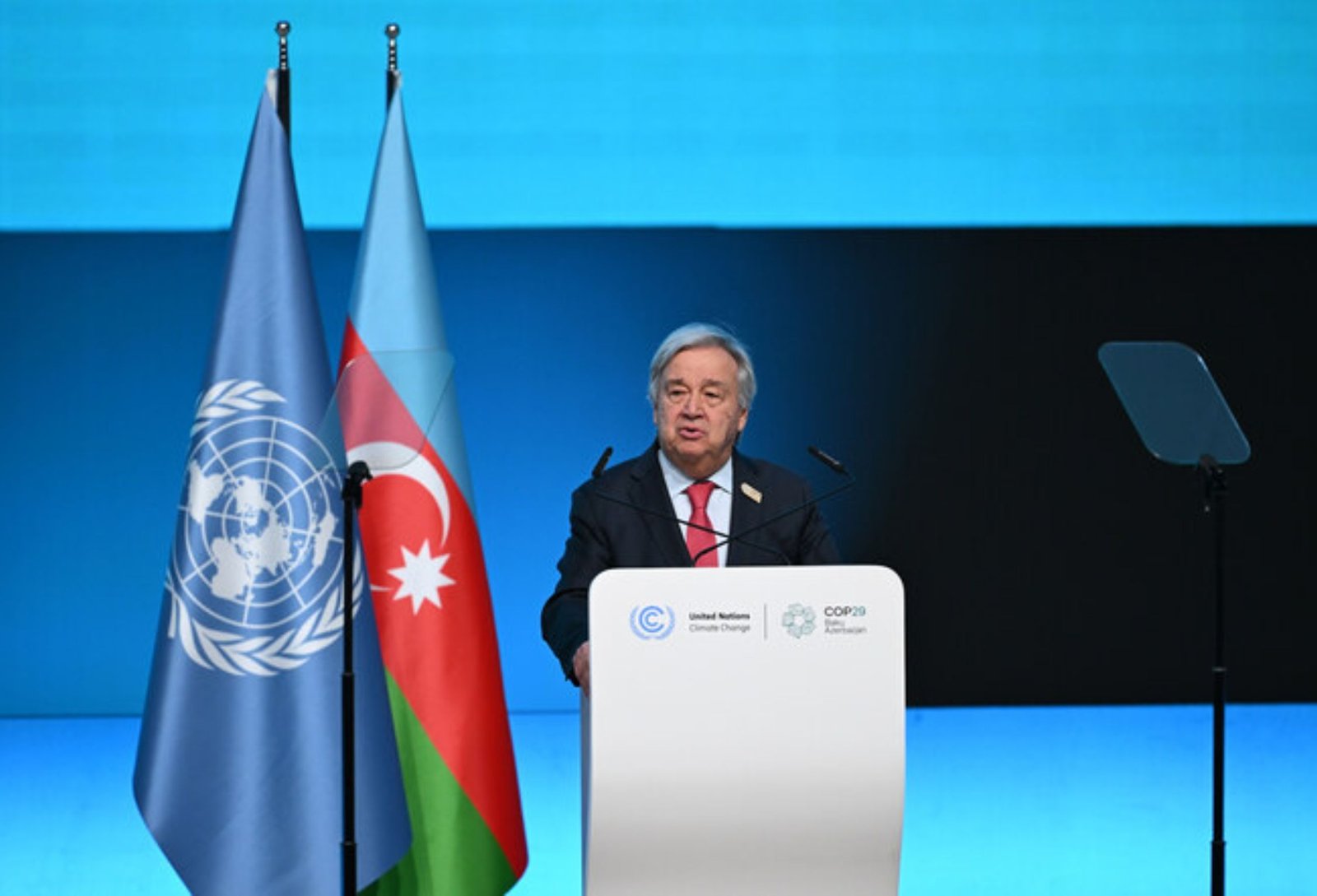At the opening session of COP29, United Nations Secretary-General António Guterres made an urgent plea to international leaders to close the widening climate adaptation finance gap, which could reach a staggering $359 billion annually by 2030. Guterres underscored the immediate need for action to protect vulnerable communities facing increasing climate risks, including extreme weather events, food insecurity, and loss of livelihoods.
The High Cost of Inaction
In his remarks, Guterres stressed that the gap between the financial needs for climate adaptation and available funding is not just a fiscal issue, but a matter of life and death. “
The Secretary-General also pointed to the broader economic benefits of increased adaptation funding, highlighting how investing in climate resilience can drive sustainable development and create new economic opportunities. He called for an international focus on concessional finance—affordable financing for developing nations—to help them address climate change while ensuring equitable growth.
A Global Call for Action and Accountability
Guterres also highlighted the importance of effective early warning systems, pushing for a global initiative to ensure that every person on Earth is protected by such a system by 2027. He called for new national climate action plans that would support global goals, such as tripling renewable energy capacity, doubling energy efficiency, and halting deforestation by 2030.
The UN chief further stressed that the world’s largest emitters, particularly the G20 countries, must take a leading role in bridging this financing gap, combining technological innovation with substantial financial support for emerging economies.
Reforming the Climate Finance System
Guterres urged a complete overhaul of the global climate finance framework to enable developing countries to access the funds they need. Key to this is a significant increase in concessional public finance, new innovative funding mechanisms such as levies on fossil fuel extraction, shipping, and aviation, and a more transparent, accountable financial system. He also called for the recapitalization of multilateral development banks to help leverage private sector investments in climate action.
Plastic Pollution Highlighted at COP29
In addition to climate adaptation, the summit also spotlighted the growing threat of plastic pollution. Maimunah Sharif, Mayor of Kuala Lumpur, addressed the issue, warning that plastic waste is set to escalate dramatically by 2040, with up to 1.3 billion tons contaminating air, water, and food supplies. Sharif also pointed to the pervasive presence of microplastics in human bodies, including in the bloodstream and vital organs.
The Urgency of Action
COP29 marks a pivotal moment for the international community, as world leaders face mounting pressure to address both climate change and environmental degradation. With increasing natural disasters, record-breaking temperatures, and growing food insecurity affecting the most vulnerable nations, the need for immediate action has never been more urgent. Guterres concluded by reiterating that without swift and decisive climate adaptation measures, millions remain at risk of being left behind in the face of the climate crisis.
Read Also: Biban 24 in Riyadh Shatters Records, Driving Saudi Arabia’s Entrepreneurial Vision Forward



